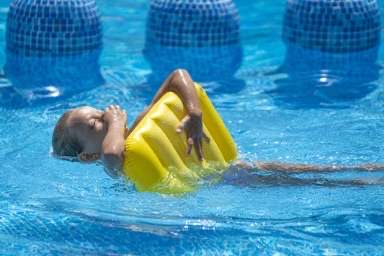Countless lotions, potions, diets and regimes may claim to provide the Holy Grail of youth, but chances are, results will be mediocre at best. If you’re searching for a cheap way to stay feeling and looking young, you’ve found it – exercise…
It’s an inescapable fact – we’re all getting older. Although you can’t stop the march of the years it is possible to slow down the effects of aging; enabling you to enjoy life more and for longer. As you age three things happen: we lose lean muscle mass and bone strength, and find it increasingly difficult to lose weight. James Staring, fitness expert at Fit to Last, offers his advice on how to battle the ageing process.
Loss of muscle mass
Between 25 and 65, people lose about five pounds of lean muscle mass each decade, with this process accelerating after the age of 60. A significant cause of loss of muscle mass as we age is sarcopenia (from the Greek translation ‘poverty of flesh’), which is to our muscles what osteoporosis is to our bones. Ageing muscles lose their ability to respond to growth-encouraging substances, one of which is insulin. Insulin resistance also being a contributing factor in obesity and Type 2 Diabetes.
Nutrition as prevention
Nutritional intervention will help prevent age-related muscle loss. These suggestions are not age-specific, therefore regardless of how old you are they can be implemented straight away.
- Non-processed carbohydrates: switch your carbohydrates from processed to unprocessed (simply, ditch the white bread and white rice, opt for the whole grains). You will stabilise your blood sugar and avoid insulin resistance.
- Omega 3: make sure you are consuming 2-3 portions of oily fish per week (eg: mackerel, salmon) to make sure you are getting sufficient Omega 3 in your diet. This will ensure that your cells are healthy and the required nutrients will get where they need to go. Also, Omega 3 regulates hormone production. (If you’re veggie, algae is an effective alternative).
- Colourful fruit and vegetables: think bright and deep colours in your fruit and vegetables, and make sure you are having five to seven portions a day. In addition to the antioxidant qualities of berries and apples, multi-coloured vegetables carry a range of different nutrients, so consume the rainbow and load up!
Loss of bone strength
Hormone production decreases with age. The male decline in testosterone production (andropause) begins after 30, decreasing at a rate of 1% per year. An important side effect of this decrease in hormonal output is increased risk of osteoporosis, or a loss of bone strength.
Preventing loss of bone strength
- Supervised weight bearing and resistance training using exercises that load the bone along the length will help prevent osteoporosis, but please visit your GP before starting an exercise program. By loading ‘along the length’ of bone, we’re referring to exercises that use more than one joint, or complex movements (for example, a squatting motion is more effective at loading than a leg extension, because more joints are utilised in the former than the latter). By using this guideline when choosing exercises, you will help decrease bone loss as you age, as well as increase your metabolism which will also help you control weight as well as retain muscle mass. “No one wants to get old, but if you start to exercise regularly and eat properly now, you can keep yourself in a ‘state of denial’ and fend off the clock for a lot longer, smiling along the way”, says James.
Decreased ability to lose weight
After 25, with each passing decade individuals experience a 2-4% decline in their Resting Metabolic Rate (RMR). This is the calorie requirement to perform your body’s daily functions. Because of this, as you age it becomes more difficult to lose weight. A contributing factor also is the tendency toward decreasing activity levels through sowing the pace of life as we get older.
Preventing a decline in RMR
- Start an exercise regime now and it will help you retain muscle mass as you get older. By getting into a regular habit of exercise (this can include walking, swimming, yoga, or other activities involving your whole body), you will maintain muscle mass while at the same time improving joint health. Full body activities performed correctly will help maintain joint health through putting your joints through a full range of motion, thereby keeping your joints in good working order.
James Staring is a certified fitness professional with experience training endurance runners, triathletes, low back pain sufferers, and weekend warriors of all ability levels.







